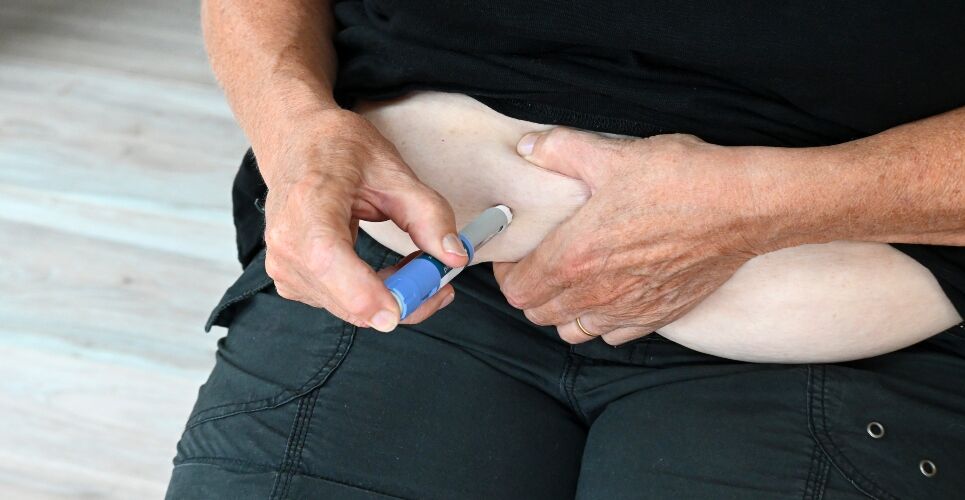Semaglutide may be an effective treatment for the skin condition hidradenitis suppurativa, common in people with obesity, say researchers.
A team in Ireland monitored outcomes for a small number of obese patients with varying degrees of hidradenitis suppurativa who were taking a weekly dose of semaglutide.
Patients reported fewer flare ups and improvements on quality-of-life scores, the researchers told delegates at the recent European Academy of Dermatology and Venereology (EADV) Congress 2024 in Amsterdam.
The impact on the skin condition from the modest doses patients were taking was ‘encouraging’ and more work is now needed to look at the benefits including alongside other medications, said study lead Dr Daniel Lyons from St Vincent’s University Hospital, Dublin, Ireland.
It has been estimated that hidradenitis suppurativa, which causes painful abscesses and scarring, effects one in 100 people, with obesity being a key risk factor and women more at risk than men.
The condition can be difficult to manage, and more effective and better tolerated treatments are needed, the researchers said.
The study followed 30 patients being treated for the condition in a dermatology clinic who were given semaglutide at an average dose of 0.8mg – much lower than the average treatment dose – for an average of 8.2 months.
Patients were also treated with other hidradenitis suppurativa medications, and 10 of them were prescribed a combination of medicines and had been taking them for months before starting on semaglutide.
Frequency of flare ups in those taking semaglutide fell from an average of once every 8.5 weeks to once every 12 weeks, the team reported.
Quality of life improved significantly, and one-third of patients reported a reduction of four points or more on the Dermatology Life Quality Index.
The mean weight of participants dropped from 117.7kg to 111.6kg, with a reduction of average BMI from 43.1 to 41.5, congress delegates heard.
And positive improvements were also seen in some biochemical markers with HbA1c levels dropping from 39.3 to 36.6, and average C reactive protein levels falling from 7.8 to 6.9 indicating reduced inflammation, the researchers added.
Dr Lyons said the findings suggested that semaglutide, even at modest doses, could offer substantial benefits in managing hidradenitis suppurativa. The low doses taken by the patients at the clinic were ‘primarily due to lack of availability’.
He said: ‘While the drug’s role in promoting weight loss is well established, what’s particularly exciting is its potential to also reduce the frequency of hidradenitis suppurativa flare-ups, contributing to the notable improvements observed in patients’ quality of life.
‘To build on this progress, larger randomised controlled trials are necessary to validate these findings. Additionally, future research should explore the impact of higher doses of semaglutide and its effects independently of concomitant medications to fully understand its potential.’
He added: ‘Ultimately, we hope our preliminary data will encourage dermatologists to consider weight loss medication as an adjunct to existing hidradenitis suppurativa treatments and inspire further research in this area aimed at improving outcomes for people living with this challenging condition.’
In the summer, the UK’s medicines regulator approved the use of semaglutide for cardiovascular prevention in obese and overweight patients with established CVD.
This was based on a study which found that semaglutide reduces the incidence of major adverse cardiovascular events (MACE) by 20% when compared with a placebo. Headline results from this study were first revealed a year ago, with full results since published in the New England Journal of Medicine.
A version of this article was originally published by our sister publication Pulse.

